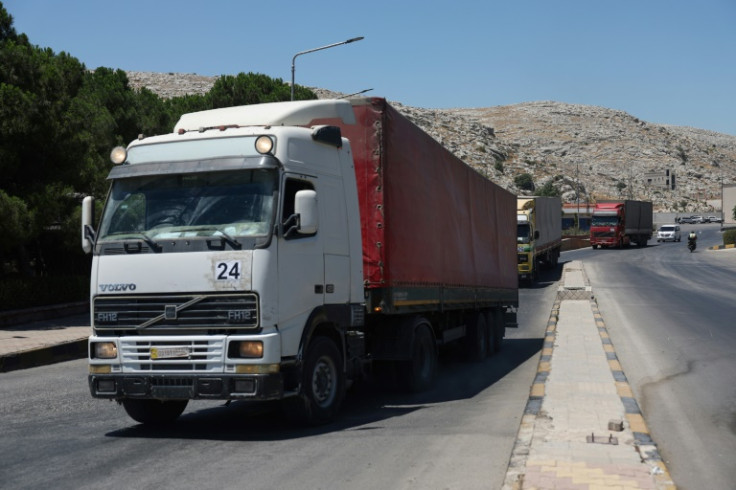UN Says Reached Deal With Syria Over Key Aid Crossing

The United Nations has said it reached agreement with the Syrian government on aid deliveries to rebel-held areas from Turkey, raising concern among relief groups who had wanted Damascus kept out.
Under a 2014 deal, most international aid had passed through the Bab al-Hawa crossing from Turkey without the authorization of Damascus.
But last month, the Security Council failed to reach consensus on extending the mechanism, and the UN said a subsequent Syrian offer to keep the crossing open for another six months contained "unacceptable" conditions.
Late Tuesday, a UN spokesperson said that "the secretary general welcomes the understanding reached yesterday (Monday) by the United Nations and the government of Syria on the continued use for the next six months of the Bab al-Hawa border crossing".
The deal followed engagement between UN humanitarian affairs chief Martin Griffiths and Damascus for the UN and its partners to keep providing assistance "at the necessary scale and in a principled manner that allows engagement with all parties... and that safeguards the UN's operational independence", the statement said.
The Syrian government's previous conditions included that the UN cooperate with it fully and not communicate with "terrorist organizations" -- a reference to Hayat Tahrir al-Sham, a jihadist group formerly affiliated with Al-Qaeda that controls the Syrian side of the Bab al-Hawa crossing.
Several international organizations had expressed fear that allowing Damascus control over the flow of aid to rebel-held areas could result in limiting access to those most in need.
More than four million people live in rebel-held areas of northern and northwestern Syria, many of them in overcrowded, impoverished displacement camps.
"The consent reaffirmed by Syria in recent days provides a basis for the UN and its partners to lawfully conduct cross-border humanitarian operations through Bab al-Hawa," the UN statement said.
The International Rescue Committee voiced alarm at the announcement.
"We are concerned that the removal of certainty and security provided by Security Council authorization will impact the ability of humanitarian organizations, and particularly Syrian NGOs, to operate effectively," the relief group said in a statement.
"The Security Council resolution was one guarantee that provided communities in the northwest some comfort knowing their access to lifesaving assistance was supported and protected by the international community."
The IRC added that the deal's expiry in February "at the height of next year's winter season, raises significant concerns about the ability of the response to scale up to meet needs given the lack of predictability."
The UN announcement came just hours after it said Syria had extended for another three months the use of two other crossings -- Bab al-Salam and Al-Rai -- which were opened following a devastating February 6 earthquake.
Civil war broke out in Syria after President Bashar al-Assad's government crushed peaceful protests in 2011. The conflict has killed nearly half a million people and driven half of the country's pre-war population from their homes.
Russia last month vetoed a nine-month extension of the Bab al-Hawa mechanism then failed to muster enough votes to adopt a six-month extension.
Damascus regularly denounces the UN aid deliveries as a violation of its sovereignty. Its ally Moscow has been chipping away at the Security Council deal for years.
© Copyright AFP 2025. All rights reserved.





















